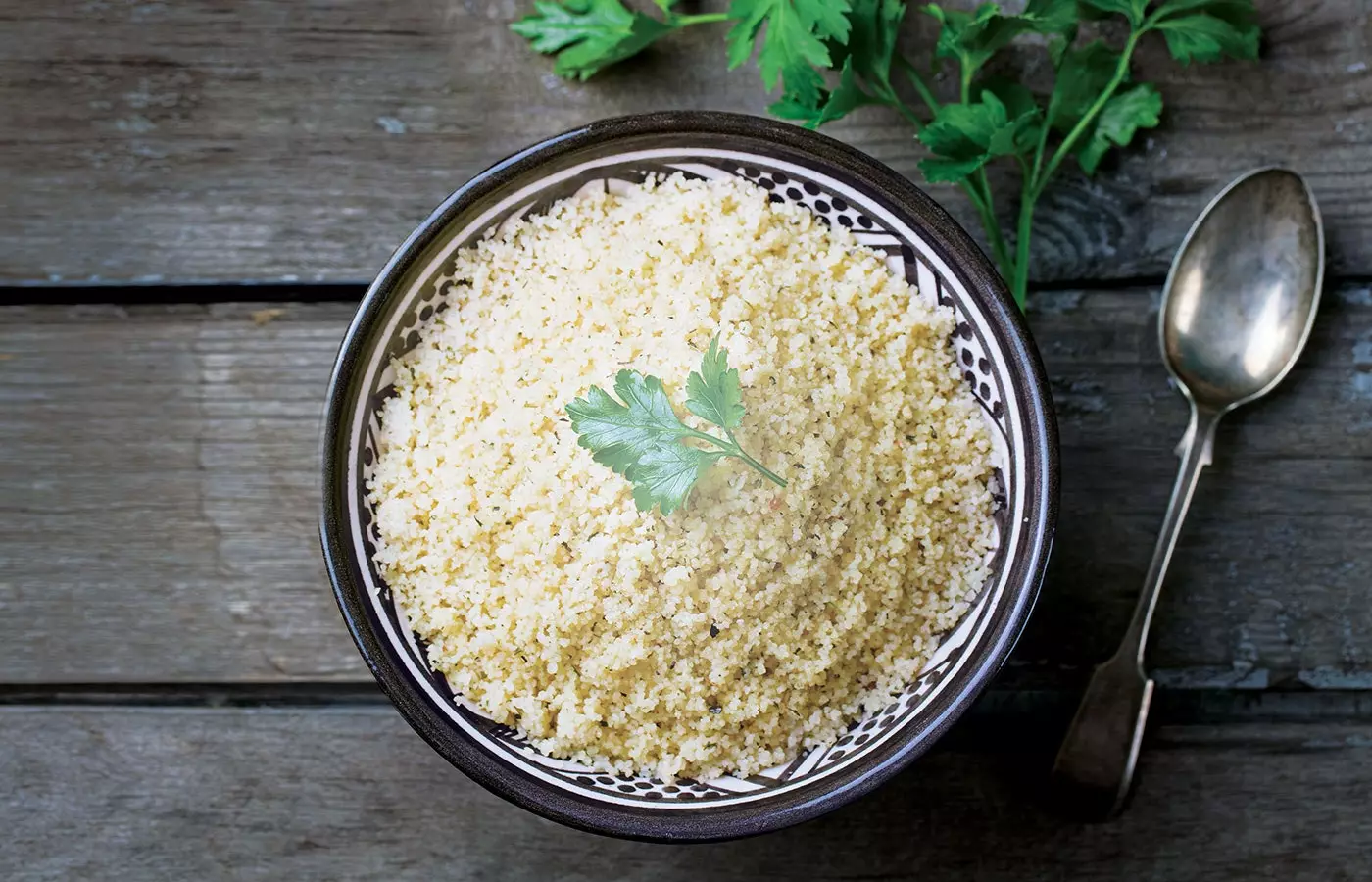
What if the secret to feeding the world was already growing in Africa five thousand years ago?
In everything falls apart , the great novel of the father of modern african literature the word is repeated over and over again "yam" . The future of the characters depends solely and exclusively on the abundance or lack of this tuber completely unknown in the West.
With each new harvest season it becomes clear that the yam makes or breaks everything with its omnipresent power. From life to death. each yam emphasizes the magical link between agriculture and society , which ends up defining the status of each person within a rural community.
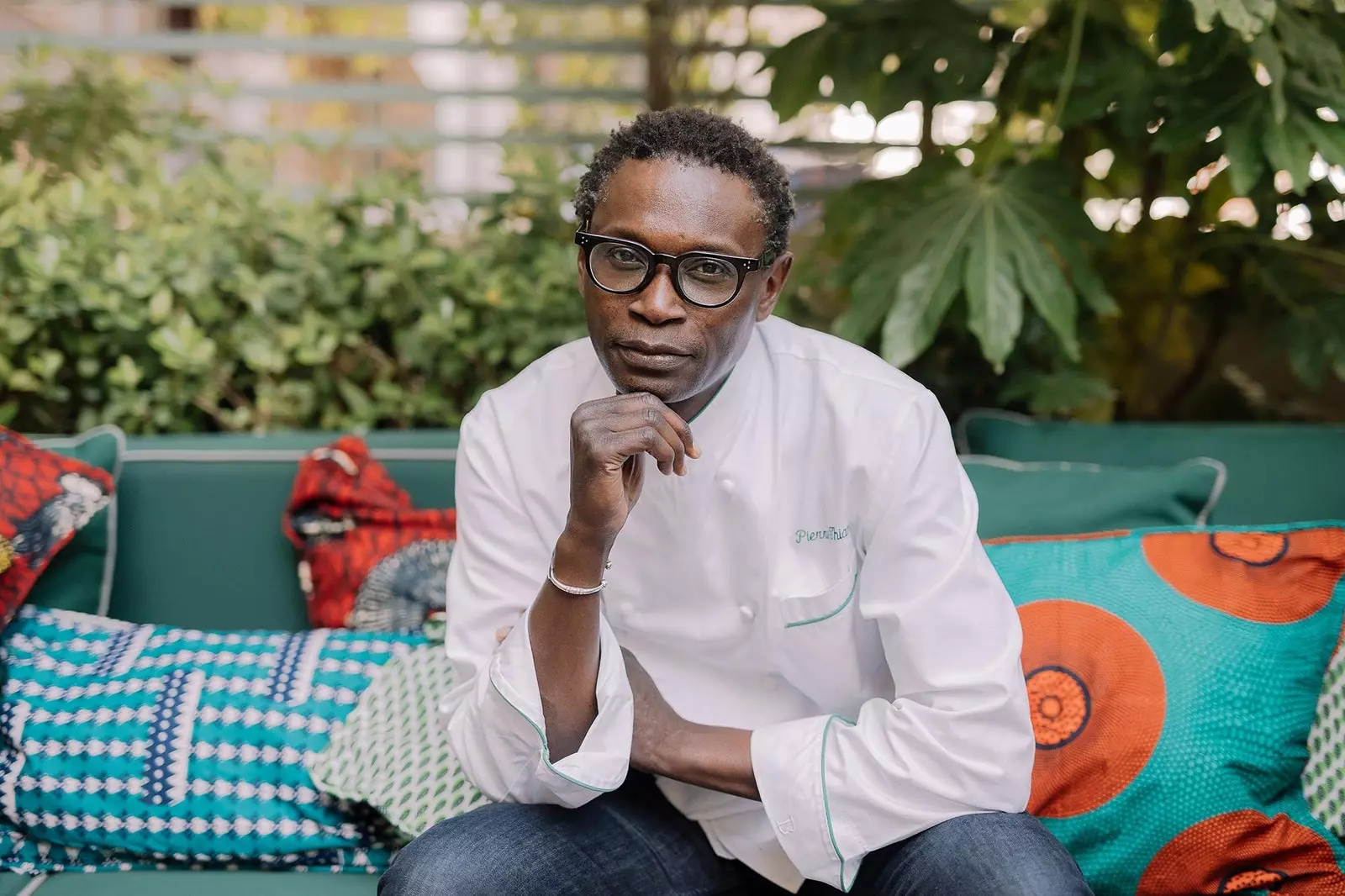
Pierre Thiam, chef and precursor of Yolélé Foods
"The name represented virility and the one who was able to feed his family with yams crop after crop was a real big man”, he writes Chinua Achbebe in his magnum opus.
As a (white) Western reader it is a slap in the face to realize the absolute ignorance of the existence of the yam, and by rebound, of the traditional African crop.
An inexhaustible source of food for hundreds of years, but without any presence in international markets. Same as him phone . A ancient cereal capable of feeding not only the poorest areas of Africa , but to the entire world if its cultivation were promoted on a large scale.
“The name of the book is our fonio. In the Dogon culture of Mali, the fonio's nickname is "Po", which means "seed of the universe" . According to our mythology, the universe arose from a fonio seed,” the Senegalese chef tells Condé Nast Traveler. Pierre Thiam, spokesperson and heart of Yolélé Foods.
"Although it has been cultivated for over 5,000 years , the fonio is unknown to the West and even to many large cities in Africa ", he tells us.
His young company proposes something as beautiful as it is revolutionary. Enough of helping Africa by collecting food from rich countries to take them to the areas where hunger is most urgent.
that of "Bread for today, hunger for tomorrow" comes like a glove because the inhabitants are not given tools to solve future problems as a community.
Instead, Yolele Foods commitment to an empowering alternative: Africa is capable of feeding itself and of much more, it can and must export food to generate inner wealth.
Something as simple and complex as responding to this mental exercise: yes, in all the restaurants in the world cous cous, bulgur or quinoa have been normalized , can not West African fonio be an equally worthy, tasty and healthy alternative?
"The fonio is special in many ways," says Pierre Thiam. “Nutritionally it is very rich in cysteine and methionine, two important amino acids for human growth , almost non-existent in most major grains.
does not contain gluten , is rich in fiber and has a low glycemic index (which is why it is recommended for diabetics) . In addition, fonio cultivation is excellent for the environment because it matures in two to three months and it grows in poor soils without the help of much water.
Last but not least, it is easy to grow and farmers can always rely on fonio where other crops have failed,” says Thiam. Maybe that's why the locals call it "hungry rice".
Simply buying grains of this cereal it is helping to alleviate extreme poverty in Africa. And the best thing is that fonio is just the tip of the iceberg: “Not only fonio, there are many unknown foods with enormous potential.
Moringa leaves, Baobab fruit, sorghum or Bambara beans . Just to name a few." That's why in Yolele Foods bet on recover the wisdom of their ancestors , its roots and all the history of its lands (although now it is a vague memory):
"For a long time we have been told the story that what comes from the West is better and, unfortunately, many of us have believed it. We urgently need to change this defeatist mentality," explains the chef.
"As long as we continue to import much of the food that makes up our diet, our health and our environment, it will only get worse. We are just beginning to realize that the West has its limitations ”, he concludes.
Some limitations that Pierre Thiam supported by worrying data and numbers. Today, Africa has 60% of the world's arable land. Land grabbing by large European companies is already a phenomenon that does not let those who love the continent sleep:
“It goes without saying that we played and we will play an important role in feeding the planet. This is a huge responsibility that needs to be approached with care.
The African continent has become the main objective of the large companies of intensive agriculture , who simply seek to expand their corporate strength, regardless of the science and proven facts of the climate change . Unfortunately, this is happening with the complicity of corrupt local governments."
To prove it not only with words, Yolélé Foods is changing the rules promoting the work of small rural farmers with an objective between eyebrows and eyebrows: that they do not abandon the towns of West Africa.
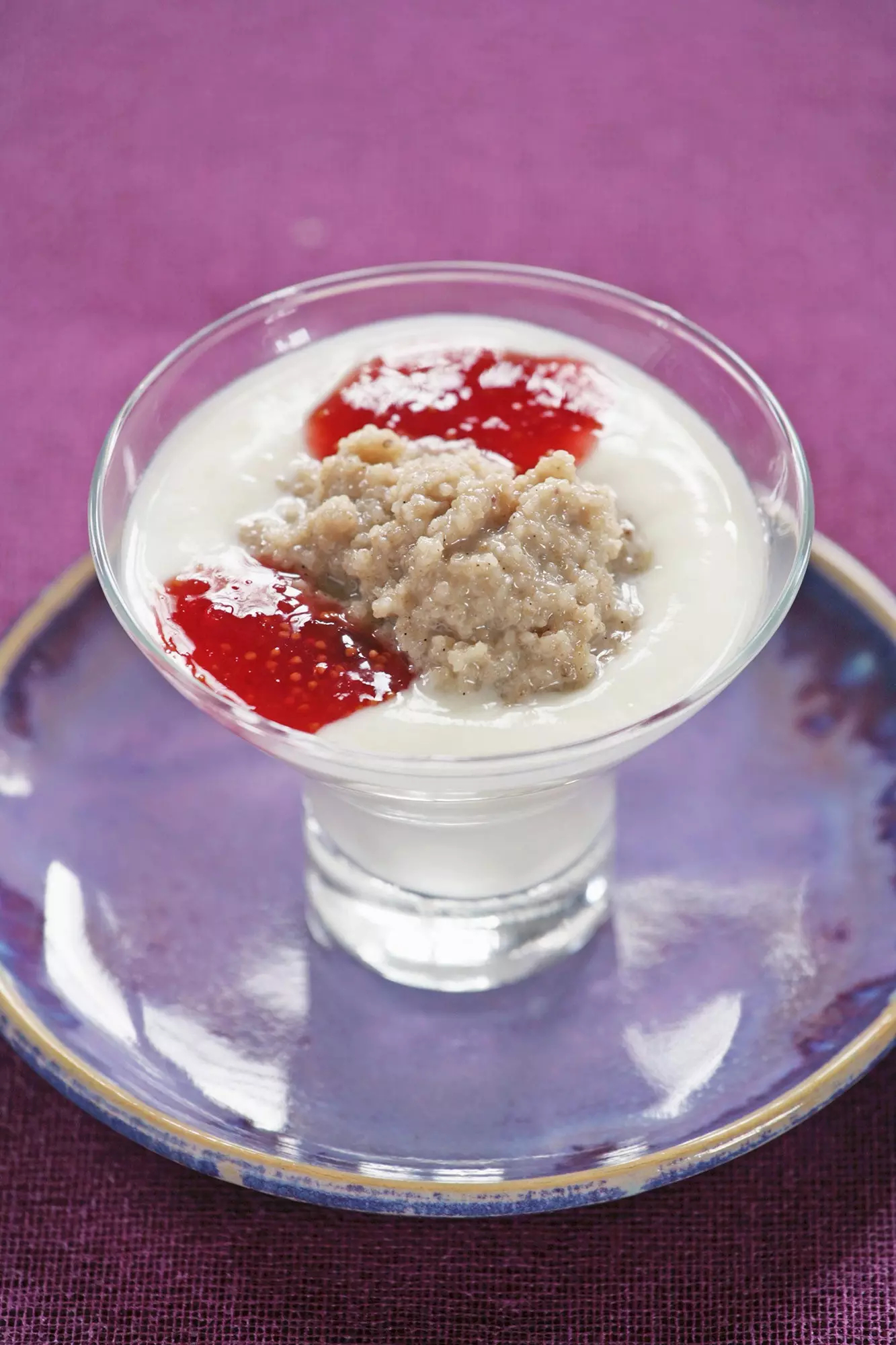
Fonio, the cereal that you will want to include in all your dishes
Interestingly, this area combines two apparently contradictory factors: it is one of the most vulnerable in the world, but it also contains enormous potential for fonio cultivation.
Waiting for something to change many young people leave home for overcrowded cities where they are exploited until they risk their lives on the dangerous path to Europe :
“Some will see the opportunity in Africa and look for ways to collaborate. The challenge of such collaborations must ensure a non-negotiable factor: maintain the integrity of people ”.
As a supporter of local West African products, Pierre Thiam traveled to ** New York ** to introduce pan-African food and, almost without realizing it, he ended up cooking at the UN and writing three books.
During the months of June and July he has shown all the power of Senegalese cuisine in the Batuar restaurant at the Cotton House ( Barcelona ):
"The african cuisine It has always played an important role throughout history. The African diaspora has affected the recipes of half the world. particularly in the Americas , where many ingredients arrived, cooking techniques and recipes during the Atlantic slave trade.
**From Louisiana to the Carolinas, Brazil, the Caribbean or Latin America**, traces of West African cuisine can be tasted everywhere.”
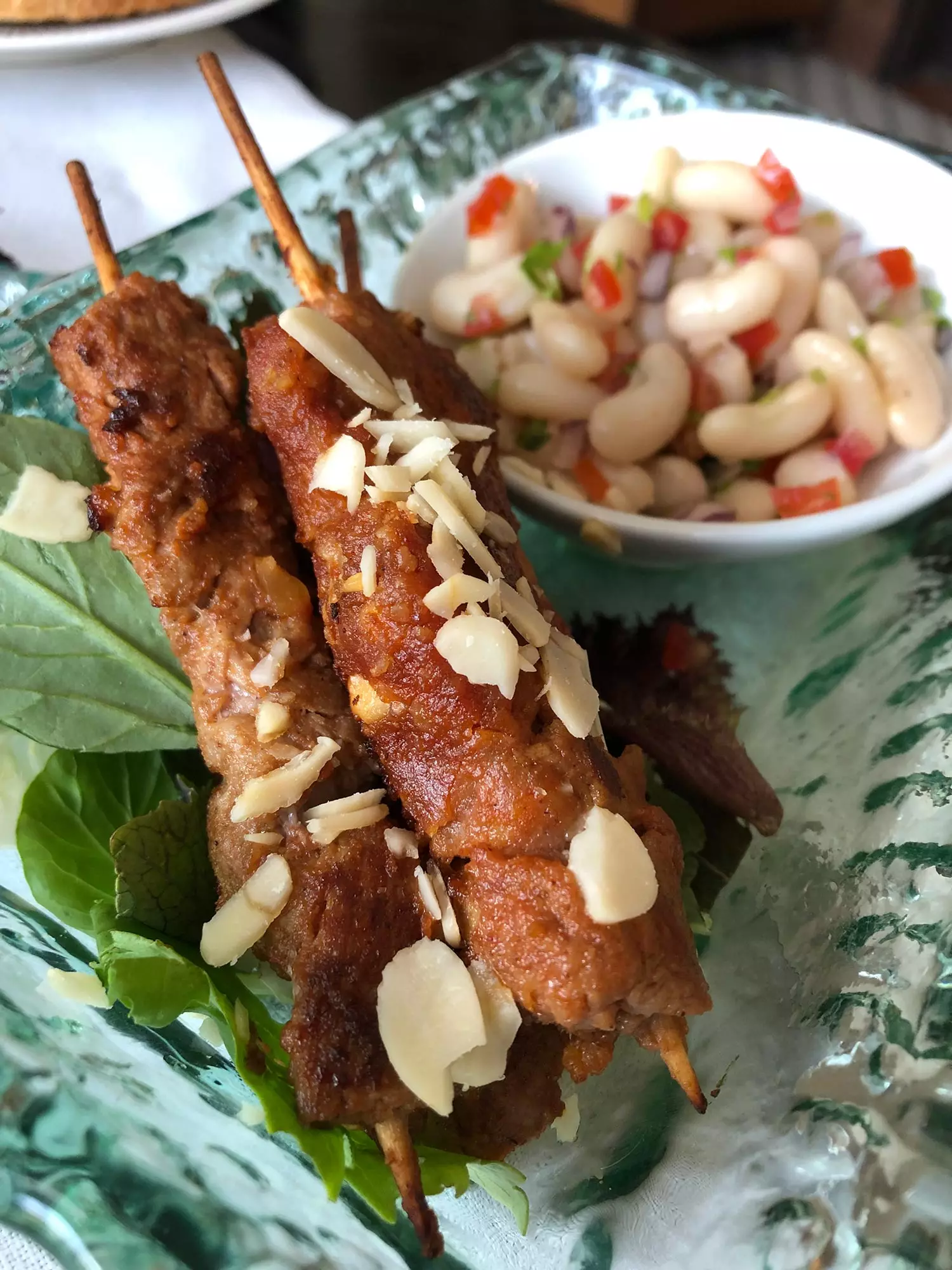
Skewers of marinated meat with bean salad
Dishes such as bulettu djeun (salmon and cassava croquettes with sweet tamarind sauce) , tandarma akk merguez (dates stuffed with lamb sausage with harissa sauce) , salatu mango akk fonio (mango and fonio salad with lime and ginger dressing) , dibi hausa akk salatu niébé (marinated meat skewers with bean salad) or shadow (rice pudding with coconut, roasted mango, honey and "Hibiscus Sombi" confit) .
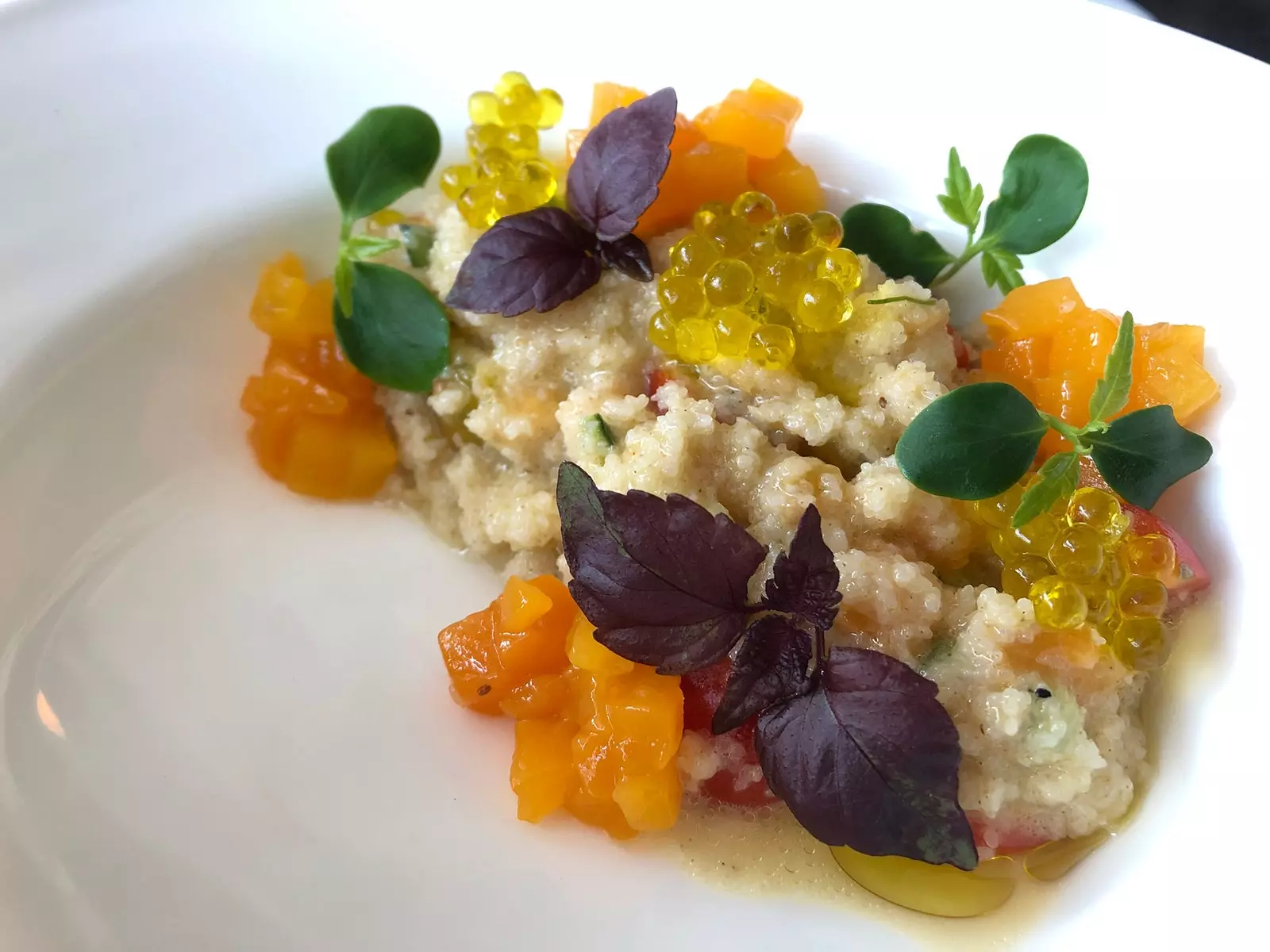
Rice pudding with coconut, roasted mango, honey and "Hibiscus Sombi" confit
“In Casamance (southern Senegal) , where my grandparents were born, there was always a spiritual connotation related to the seasons harvest ”, remembers Pierre Thiam.
“They are connected with the cycle of life and They symbolize rebirth or resurrection. It is a time of celebration. We thank the ancestors for a bountiful harvest. In the Yoruba culture of Nigeria, where a novel by Chinua Achebe takes place, the name accumulates all the symbolism as the main crop. In other regions, it is fonio, rice or sorghum ”, he adds.
Good examples that perfectly illustrate that, contrary to the title of the great novel of modern African literature, nothing falls apart if it is not allowed to die.
